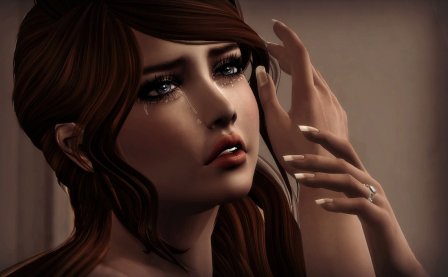“…And the life of man, solitary, poor, nasty, brutish, and short.”
– Thomas Hobbes
SOLITARY
The germ of Bestial Burden had its genesis, like most human spawn, in a hospital bed. Recovering from a sudden surgery, Margaret Chardiet lay isolated on sterile sheets, grappling with the loss of an organ. It’s the sort of sensation that is totally closed to any being other than the body’s inhabitant, the same body that, in its failure to operate, nearly ejected its controller. Our individuated gasping mass of fluid, flesh, lymph, and bone is the first object we can experience, one so closely linked to our germination that we almost immediately associate it with ourselves. But the being of the body, as amputation proves, distinguishes itself from the being of the self, even if their birth and demise are mutually linked. Parts of the brain even wall us off from the body’s workings, taking over control of breath and circulation. Consciousness is confined in a prison built of nerves, divided even from that which generates it. In bodies, we are most alone. And yet, it is only through sensation that we touch others, however closed we are to their being. Bestial Burden, in its immediacy, in its primal, abrasive engagement with the senses, reaches across the division of bodies to speak directly to you.
POOR
Humans fight constantly for health, but disease and illness, allergic reactions, mutations, dietary consequences, side effects, stress responses, and other ailments menace us at every turn. They menace us because we rely on an architecture of delicate organs poised just exactly in place, ready to revolt with any imbalance. Even the immune system, which evolved to reject foreign bodies, can involuntarily assault our own tissues. Discomfort, weakness, illness, ache; all these phenomena are the wages of embodiment, resulting from some varying degree of malfunction in the dogsbody organs laboring through death to keep us alive. Run, swallow vitamins, follow diets, floss; someday your physicality will still fall to ruin. Suffering is a constant, the burden of bestial incarnation.
NASTY
Waste, dead skin, hair, nails, sweat, blood, mucus, bile, pus: all these flow out of us, earning the mind’s disgust and revulsion. Once the body, in its secret wisdom, has cast something off, the mind repels it further, denying its origin in the self. These things remind us: like Baudelaire’s companion, someday we will become corpses. Our ejecta, whether organs or spit, repulse us as reminders of this process, revealing that soon the subject will become an object. But we’re trapped; much as the mind would like to escape, much as it believes it doesn’t belong in this compromised vessel, it is fastened to this dying animal. Chardiet’s response is hideous, uncontrollable laughter that melts into a swarm of electronics, as if the involuntary laughter that issues from her throat is just as mechanized as the sounds that issue from the oscillators. This laughter is not under control, but like the bawling it mimics, it comes from an instinctual response to the absurdity of the death drive, as if death itself has taken up residence in her larynx. Perhaps “Primitive Struggle” is an attempt to cough it up.
BRUTISH
But even instinct hasn’t quite figured out an effective response to pain. The best we can manage is to warn others. Witnessing signs of bodily rupture is terrifying: Where is that blood coming from? What is this pain? The response to these nervous sensations is familiar, because all children, in fear of the unknown, in panic, give themselves repeatedly to it: we scream. Wailing to exorcise the agony of pain that has come upon the subject unawares, something animal seizes the voice. A typical response to hearing screams is panic. Panic causes stampedes. By addressing herself to the fear centers of the medulla, Chardiet’s screams actuate autonomous bodily responses: muscle tension, motion, pupil dilation. In a live setting, as this recording partly captures, the results of this response are even more immediate. The scream opens the empathic gateway, transferring energy as adrenaline. It rushes through the bloodstream with primal efficiency. Bestial Burden, quite literally, touches a nerve.
SHORT
Life doesn’t last. But it feels as if Chardiet’s proximity to its end has rendered her project more urgent. Gone are Abandon’s clouds of acidic fog and its blurred vocals. A primary instrument on Bestial Burden is a metal plate fitted with a contact mic. Clipped bursts of steel and war-drum pounding organize the strong rhythmic center of each track, with analog circuitry punctuating each strike. Above the simple yet brutally effective violence of drum and oscillator soars Chardiet’s voice, screeching and bellowing indictments of the mind-body problem. It doesn’t last. In its final moments, laughter overtakes the recording, melding into a horrific sonic mass. The breath that struggled against vacuum at the opening here totally exhausts itself. All the immediacy of each preceding track culminates as Chardiet laughs in the face of death. No lengthy philosophical treatise is necessary. With scorching concision and visceral ferocity, Bestial Burden communicates a hard but simple truth: The enemy was in us all along.
More about: Pharmakon




